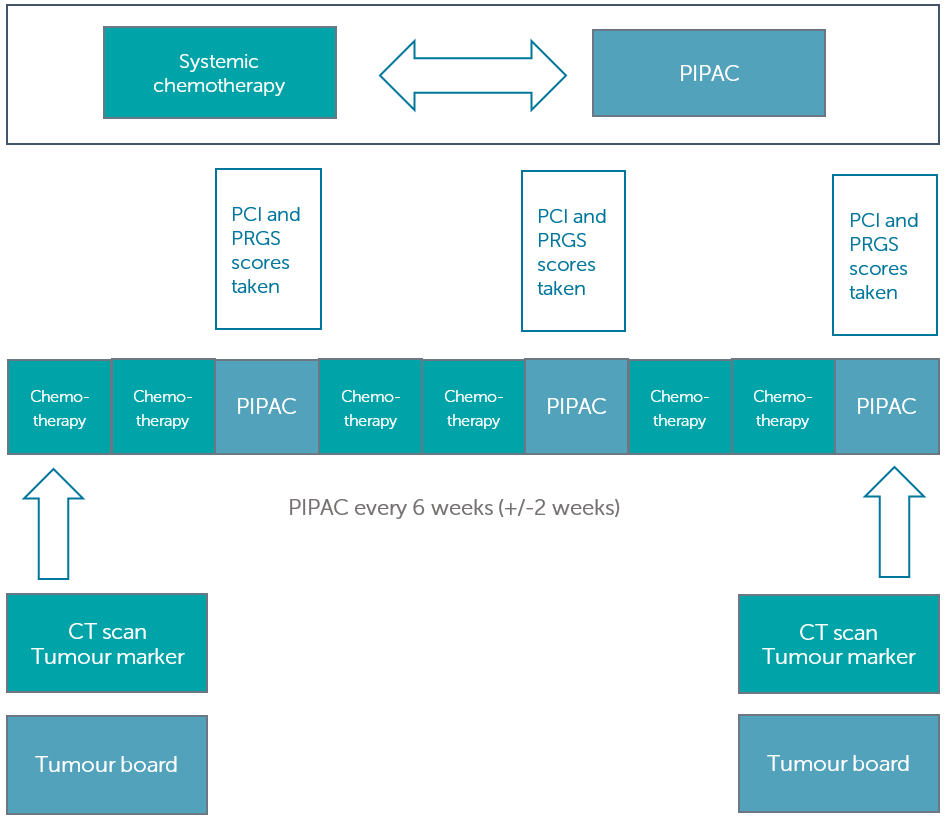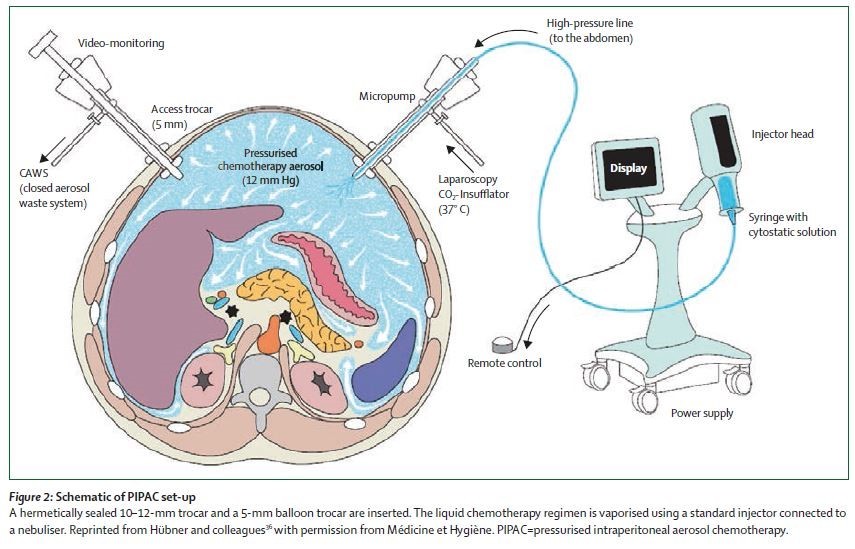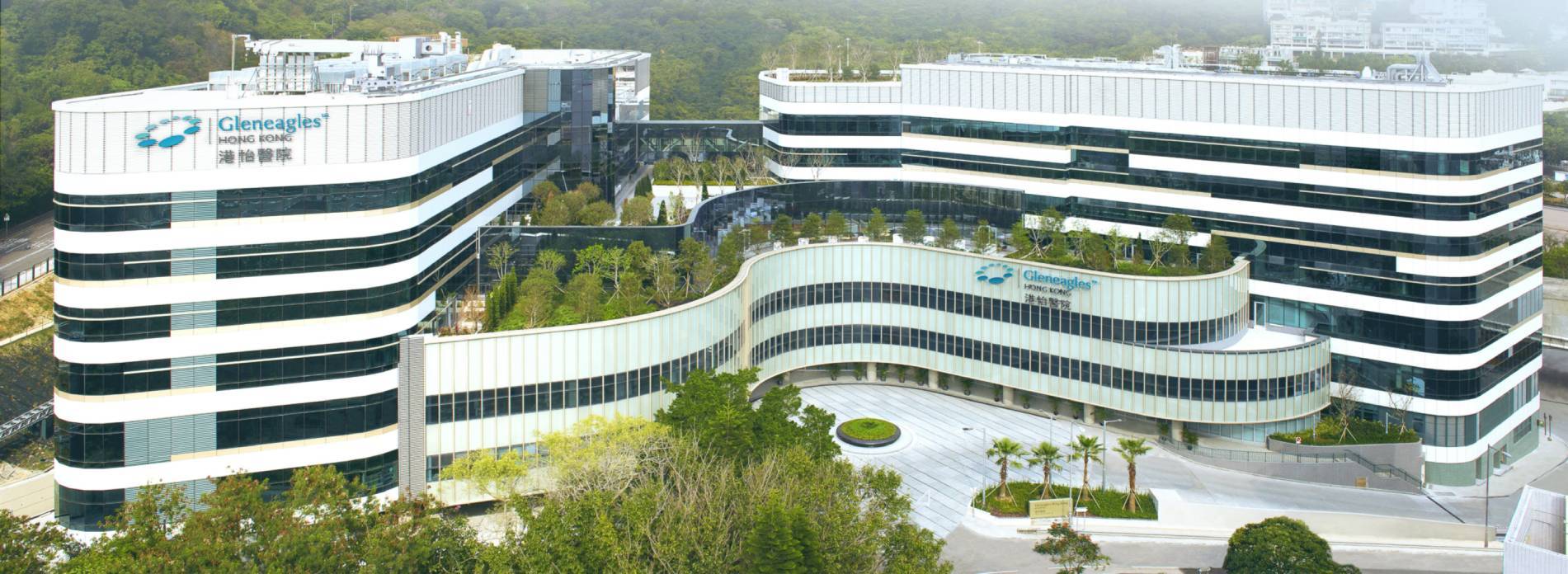Pressurized IntraPeritoneal Aerosol Chemotherapy (PIPAC)
What is PIPAC?
PIPAC is a minimally-invasive procedure which takes only about an hour, and patients can be discharged on the same day. This repeatable treatment is performed every six weeks, usually as a complementary procedure to systemic chemotherapy. Studies showed that PIPAC can relieve symptoms of peritoneal metastasis such as lessening pain, ascites and obstructive symptoms, and reduce the side effects of chemotherapy, and thus help improve patients’ quality of life.

How is the PIPAC procedure carried out?
During the PIPAC treatment, the surgeon would insert a micropump into the patient's abdomen, administering pressurised chemotherapy aerosol into the peritoneal cavity. Meanwhile, the procedure would be monitored through a laparoscope. Directly injecting the drug into the peritoneal cavity can increase the drug penetration to eliminate the tumours enhancing the efficacy.

What are the advantages of PIPAC in treating cancer?
Research* shows that PIPAC can improve the following patients' symptoms”
- Pain (63.3%)
- Ascites (60%)
- Obstructive symptoms (45.5%)
*Source: Winkler CS et al. Dis Colon Rectum 2020;63(2):242-55
Is PIPAC suitable for all patients?
If the patient has the following conditions, it is not suitable for PIPAC:
- Life expectancy of less than 3 months
- Bowel obstruction
- Exclusive total parenteral nutrition
- Decompensated ascites
- Simultaneous tumor debulking with gastrointestinal resection
- Previous anaphylactic reaction to the chemotherapy used
- Other relative contraindications:
- Extraperitoneal metastasis
- ECOG performance status >2 Portal vein thrombosis
Please consult your doctor for assessments of your condition and whether the procedure is appropriate for your case.





